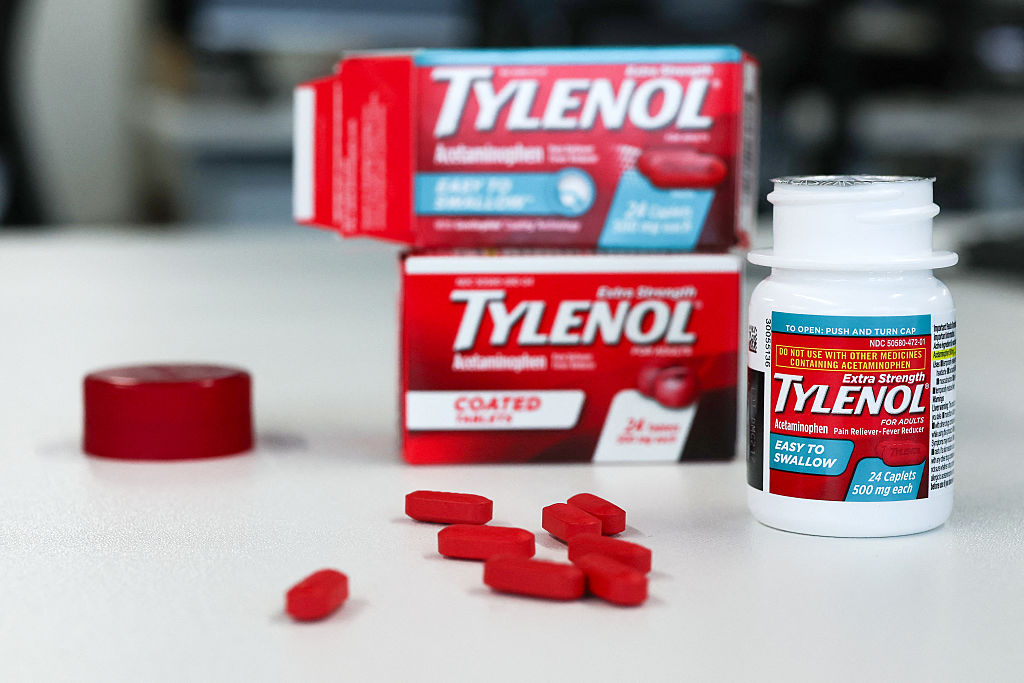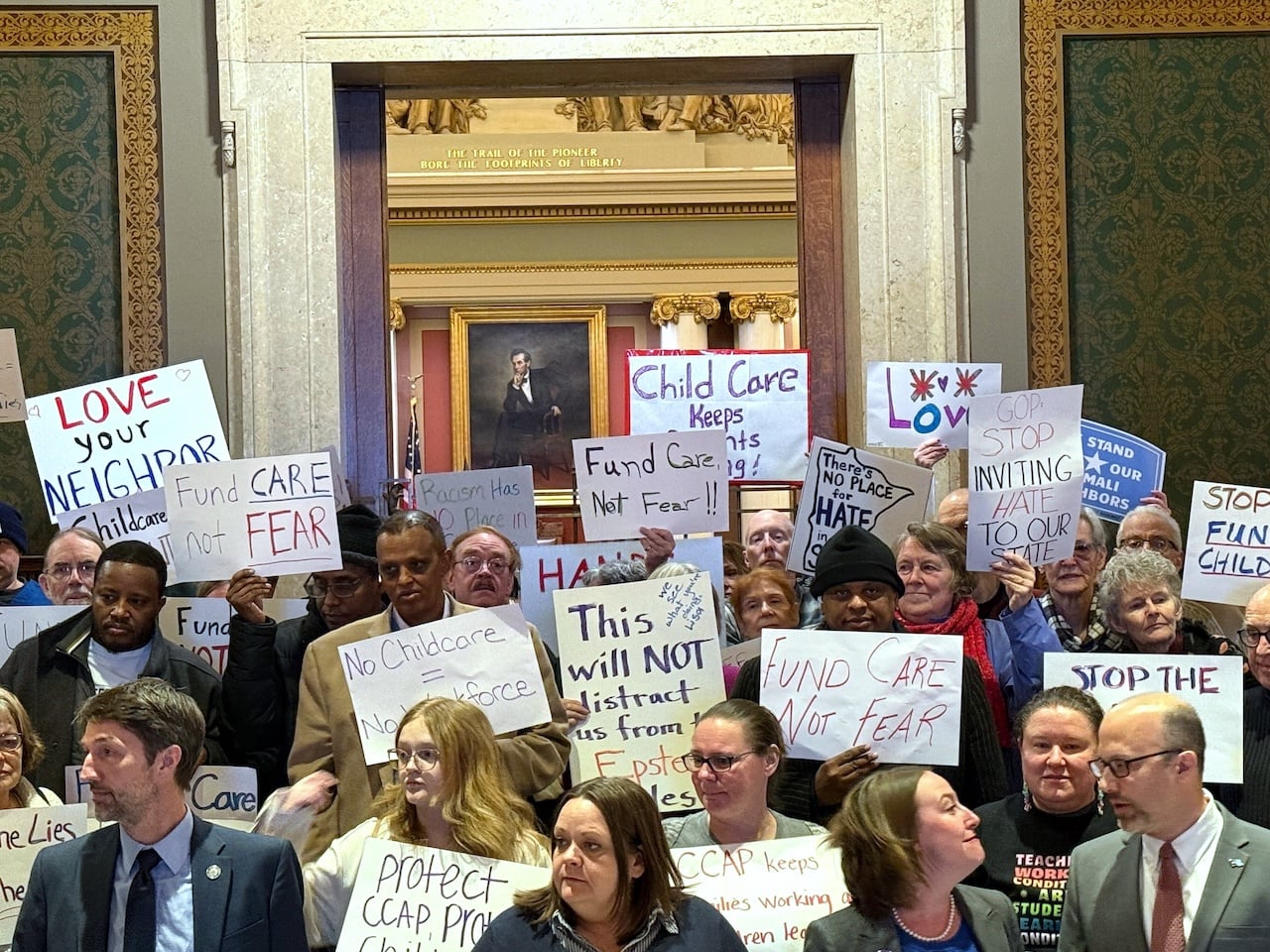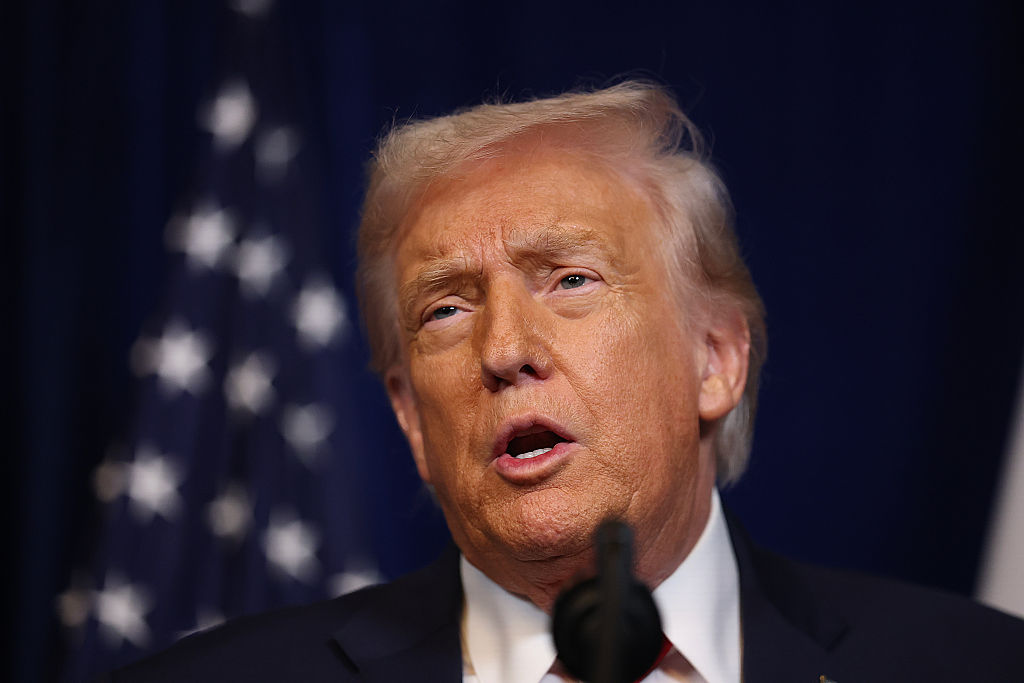Trump, Who Can’t Pronounce Acetaminophen, Claims Tylenol Causes Autism


President Donald Trump is showing us, once again, that his scientifically illiterate administration doesn’t care about facts or the scientific process when it comes to pushing its “everything causes autism” agenda. On Monday, the president issued a warning to Americans everywhere: don’t take Tylenol, especially if you’re pregnant, because there will be autism if you do.
“Taking Tylenol is not good,” Trump said during Monday’s White House briefing. “I’ll say it. It’s not good.”
According to The Washington Post, U.S. health officials have warned that acetaminophen, the active ingredient in Tylenol, should be avoided in early pregnancy except in cases of high fever. The administration has also issued the same warning for more than 600 other medications. Trump also offered up leucovorin — a drug used to treat the side effects of certain cancer medications — as a potential treatment for autism. The Problem? Unsurprisingly, actual medical experts, including the American College of Obstetricians and Gynecologists, disagree with virtually all of it.
From the Post:
Some expressed concerns that the warnings could prompt pregnant individuals to avoid Tylenol even when sick, or could push parents to try leucovorin without proper medical oversight and limited understanding of its effectiveness or long-term risks. But the fears run deeper than medical misuse.
What alarms many in the scientific community is the politicized rush to present these drugs as solutions, bypassing the slow, careful work that research demands. They warn that drawing broad conclusions from incomplete evidence isn’t just premature but reckless. And it risks undermining the public trust that is the foundation of public health.
“It’s wild,” said Colin Killick, executive director of the Autistic Self Advocacy Network. “They are playing loose with facts to show the appearance of a connection rather than doing responsible science.”
Theresa Miskimen Rivera, president of the American Psychiatric Association and clinical professor of psychiatry at Rutgers Robert Wood Johnson Medical School, expressed concern about the mixed messages reaching the public and creating anxiety. Rivera urged individuals to talk with their doctors when deciding whether to take the medication — just as they would with any other drug.
The administration’s announcements are “very, very premature,” she said. “When you do that it’s endangering not only physical health but mental health.”
The actual scientific and health experts are being far too kind. It’s OK to simply say these MAGA-fied numbskulls don’t know what they’re talking about.
First of all, Trump couldn’t even pronounce “acetaminophen.”
Imagine scheduling a whole White House briefing to pass along a purported breakthrough on medical causes of autism, and not only are you making said announcement while the research is “very, very premature,” but you also haven’t even bothered to learn the pronunciation of the medical ingredient you’re unequivocally denouncing.
“This is based on what I feel,” Trump said during the meeting, which perfectly exemplifies the truth about the so-called “facts over feelings” crowd.
Also, for whatever reason, he doesn’t think there’s any autism in Cuba.
Oh, wait — apparently, there was a “rumor.”
“I think I can say that there are certain groups of people that don’t take any vaccines or don’t take any pills that have no autism,” he said, asking his health officials, “Is that a correct statement by the way?” — which would have been the thing to do before making such an absurd claim in a nationally televised White House briefing.
“There’s a rumor — and I don’t know if it’s so or not — that Cuba, they don’t have Tylenol because they don’t have the money for Tylenol,” he continued. “And they have virtually no autism. Okay?”
According to Newsweek, Trump got at least some of his (dis)information from a study cited by Health and Human Services (HHS) Secretary Robert Kennedy Jr., which means he might as well have gotten it from TrustMeBro.com.
From Newsweek:
Cuba’s autism statistics also contradict Trump’s claims. Based on Ministry of Public Health data and records from people receiving autism services, officials estimate that 1 in 2,500 Cuban children have autism spectrum disorder, though they recognize this is likely an underestimate due to flawed surveillance methods, according to MEDICC Review.
Autism experts who have studied Cuba note that the country “has autism too. Lots of it,” but acknowledge that resources for comprehensive prevalence studies haven’t been available due to economic constraints, according to Autism Spectrum News.
At some point during his big, beautiful Tylenol rebuke, Trump said, “Don’t take Tylenol! There’s no downside. Don’t take it! You’ll be uncomfortable. It won’t be as easy, maybe. But don’t take it!”
There’s “no downside” to what, though? Taking Tylenol, or taking his dangerous, health expert-defying, science-denying advice?
According to the Post, even the Food and Drug Administration (FDA) noted that the link between Tylenol and autism ” has not been established, but, since, apparently, damn near every federal agency has found a place squarely in Trump’s pockets, it still backed the administration’s directive in the “spirit of patient safety and prudent medicine.”
Kenvue, the company that makes Tylenol, denounced Trump’s claims as nonfactual (like just about every Trump claim).
“The facts are that over a decade of rigorous research, endorsed by leading medical professionals and global health regulators, confirms there is no credible evidence linking acetaminophen to autism,” the company said in a statement.
Here’s what the research on the link between autism and acetaminophen says, via the Post:
Research into a potential link between Tylenol and autism has produced some conflicting findings. The largest study to date — a 2024 analysis published in JAMA that tracked siblings across Sweden — found no evidence of a connection. Yet a comprehensive review released this August, which pooled all existing studies, did uncover a link. Its authors cautioned that it’s too soon to conclude that the medication causes autism, but they did recommend what they called a “precautionary” approach to taking the drug.
“Patients who need fever or pain reduction during pregnancy should take the lowest effective dose of acetaminophen, for the shortest possible duration,” Andrea Baccarelli, one of the authors and a professor of environmental health at the Harvard T.H. Chan School of Public Health, said in a statement.
Trust the experts, y’all, not the administration that has so little respect for expertise, it didn’t appoint any.
SEE ALSO:
Black Women AGs Lead Charge Against Trump Admin’s Attack On Public Health
Trump Administration Cuts Funding For Black Infant Health Research, Labeling It A DEI Initiative
What's Your Reaction?
 Like
0
Like
0
 Dislike
0
Dislike
0
 Love
0
Love
0
 Funny
0
Funny
0
 Angry
0
Angry
0
 Sad
0
Sad
0
 Wow
0
Wow
0

































